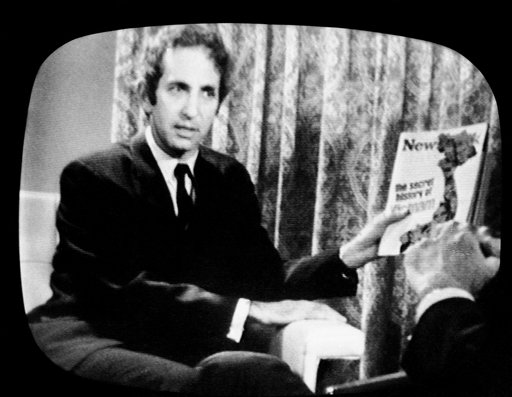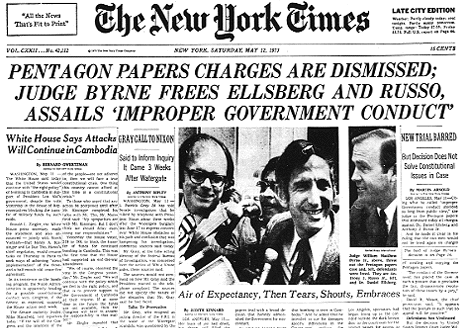I was neither awed nor upset by Edward Snowden’s NSA leaking for a few reasons: 1) From the moment the Patriot Act passed, we had given our government a “by whatever means necessary” standard, 2) I think most Americans have embraced being watched and feel safer that way (though I don’t), 3) The technological tools of today (and certainly those of tomorrow) cannot be controlled by legislation, 4) Technology is a doubled-edged sword, and the government will be spied on as much as it spies. The power has been disseminated and it will be used, if not always well. To paraphrase Chance Gardner: “We like to watch.”
I have a great fear of imprisoning whistleblowers. We need those who will risk themselves to stop Watergates and Abu Ghraibs. And while Snowden may have stated the obvious and ironically ended up living in Russia, the ultimate surveillance state, he wasn’t wrong.
In a new Ask Me Anything at Reddit, Pentagon Papers leaker and staunch Snowden supporter Daniel Ellsberg answers an oft-asked question: Why should those with nothing to hide fear surveillance?
“Question:
I’m curious how you respond when people tell you that ‘they have nothing to hide.’ How do you help them see that this isn’t a valid argument for why they shouldn’t be concerned?
Daniel Ellsberg:
Do they want to live in a democracy, with checks and balances, restraints on Executive power? (They may not feel that they care, though I would say they should; but if they do, it’s relevant to the question that follows). Do they really believe that real democracy is viable, when one branch of government, the Executive, knows or can know every detail of every private communication (or credit card transaction, or movement) of: every journalist; every source to every journalist; every member of Congress and their staffs; every judge, at every level up to the Supreme Court? Do they think that every one of these people ‘has nothing to hide,’ nothing that could be used to blackmail them or manipulate them, or neutralize their dissent to Executive policies, or influence voting behavior? Is investigative journalism, or aggressive Congressional investigation of the Executive, or court restraints on Executive practices, really possible with that amount of transparency to the Executive of their private and professional lives and associations? And without any of those checks, the kind of democracy you have is that of the German Democratic Republic in East Germany, with its Stasi (which had a miniscule fraction of the surveillance capability the NSA has now, but enough to turn a fraction of the population of East Germany into secret Stasi informants).
Might these ‘good, honest citizens’ with nothing to hide ever imagine that they might feel a challenge to be a whistleblower, or a source to a journalist or Congressperson, or engage in associations or parties critical of the current administration? As The Burglary recounts, it was enough to write a letter to a newspaper critical of the FBI to get on J. Edgar Hoover’s FBI list for potential detention or more active surveillance. And once on, hard or impossible to get off. (See ‘no fly’ lists today ).”
Tags: Daniel Ellsberg, Edward Snowden


